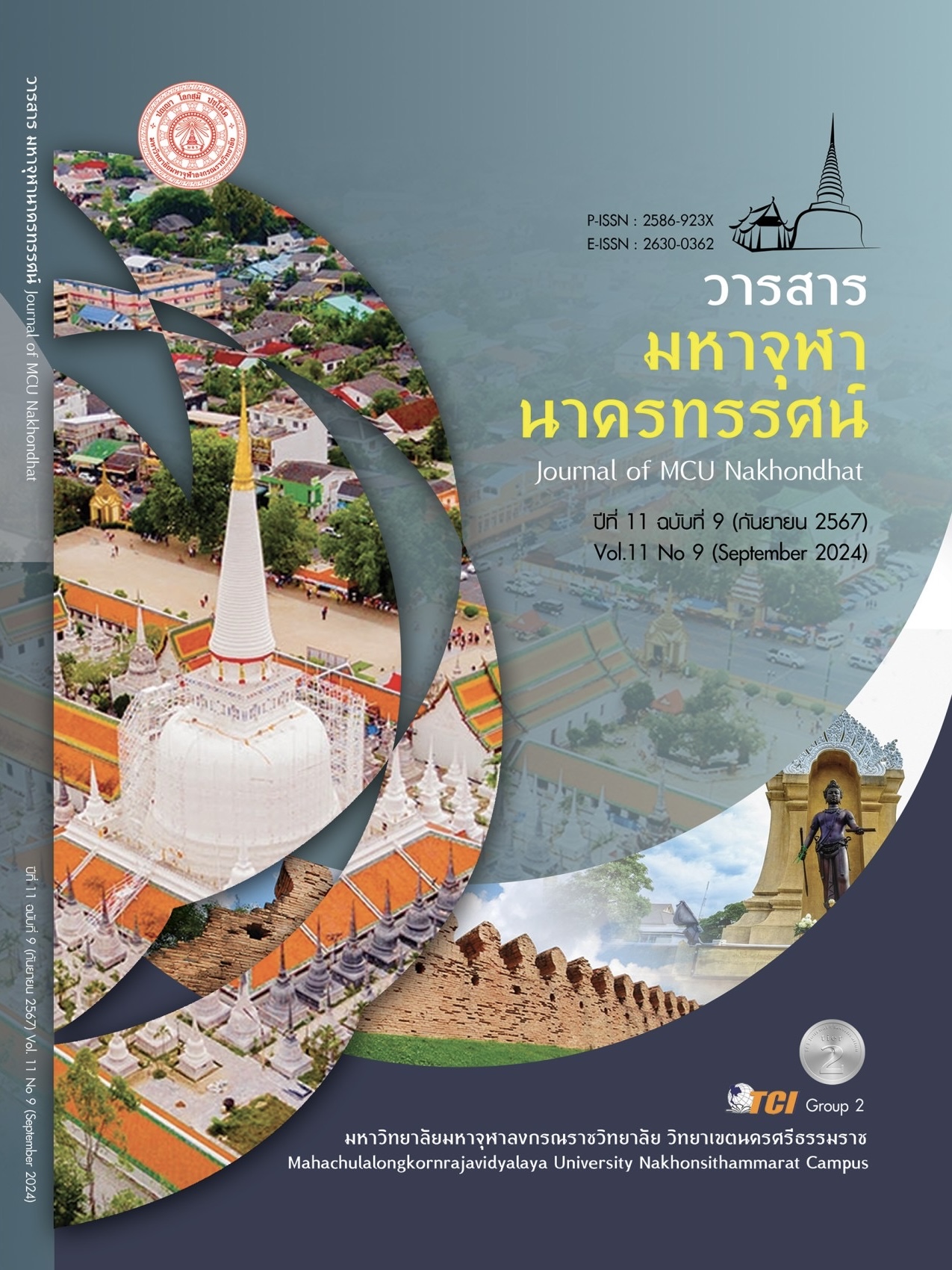TAX KNOWLEDGE AND UNDERSTANDING OF SMALL AND MEDIUM-SIZED ENTERPRISES (SMES) IN CHONBURI PROVINCE
Main Article Content
Abstract
This research aims to assess the knowledge and understanding of tax obligations among entrepreneurs in small and medium enterprises (SMEs) in Chonburi Province. It also examines the relationship between the general characteristics of entrepreneurs, including the type of legal entity, business type, registered capital, and duration of business operation, with the level of knowledge and understanding of tax obligations among SMEs by using the survey research methodology. The sample for this study consisted of 350 respondents, selected using simple random sampling from a total population of 2,174 entrepreneurs in the area. The basic statistics used for analysis and interpretation included percentages and standard deviations, and the statistical tests used to examine relationships included the F-test. The research findings indicated that the majority of the sample consisted of limited partnerships, totalling 164 entities, which accounts for 46.85%. Most entrepreneurs were in the service sector, with 240 entities, representing 68.60%. Additionally, 348 entities, or 99.40%, had registered capital of less than 1 million baht, and the majority of entrepreneurs had been in operation for less than 5 years, accounting for 89.14%. The average level of knowledge and understanding of tax obligations was at the highest level ( = 4.23, S.D. = 0.72). The results of the relationship testing between the general information of the businesses and the level of knowledge and understanding of tax obligations for SMEs found that: 1) The type of legal entity showed a significant difference in the level of knowledge and understanding of tax obligations. 2) The type of business activity did not show a significant difference in the level of knowledge and understanding of tax obligations. 3) The registered capital showed a significant difference in the level of knowledge and understanding of tax obligations. 4) The duration of business operation showed a significant difference in the level of knowledge and understanding of tax obligations, at a statistical significance level of 0.05.
Article Details

This work is licensed under a Creative Commons Attribution-NonCommercial-NoDerivatives 4.0 International License.
References
ปิยะฉัตร จันทรวุฒิ. (2562). การศึกษาปัจจัยที่มีผลต่อความรู้ ความเข้าใจ และพฤติกรรมการเสียภาษีของผู้ประกอบการ SMEs ในจังหวัดขอนแก่น. ขอนแก่น: มหาวิทยาลัยขอนแก่น.
พรรณชญาน์ ศิลประเสริฐ. (2560). ความรู้ความเข้าใจในการชำระภาษีท้องถิ่นของผู้มีหน้าที่เสียภาษีในเขตเทศบาลตำบลแปลงยาว อำเภอแปลงยาว จังหวัดฉะเชิงเทรา. ชลบุรี: มหาวิทยาลัยบูรพา.
วลัยพร แก้วสาร. (2562). ความเข้าใจเกี่ยวกับการเสียภาษีเงินได้บุคคลธรรมดา กรณีศึกษาผู้เสียภาษีเงินได้บุคคลธรรมดาในเขตสานักงานสรรพากรพื้นที่ชลบุรี 3. ใน วิทยานิพนธ์ปริญญามหาบัณฑิต คณะพาณิชยศาสตร์และการบัญชี. มหาวิทยาลัยธรรมศาสตร์.
วันทิสา ประทุม. (2564). การศึกษาแนวทางเพื่อส่งเสริมผู้ประกอบการขนาดกลางและขนาดย่อมเข้าสู่ระบบภาษีเงินได้และภาษีมูลค่าเพิ่ม. กรุงเทพมหานคร: มหาวิทยาลัยธรรมศาสตร์.
สุภัชชา สิริสวัสดิ์. (2563). การศึกษาความรู้ ความเข้าใจ และพฤติกรรมการเสียภาษีของผู้ประกอบการ SMEs ประเภทกิจการค้าปลีกในเขตพื้นที่กรุงเทพมหานคร. กรุงเทพมหานคร: มหาวิทยาลัยรามคำแหง.
Cozby, P. C. & Bates, S. C. (2018). Methods in behavioral research (13th ed.). America: California McGraw-Hill Education.
Creswell, J. W. (2014). Research design: Qualitative, quantitative, and mixed methods approaches (4th ed.). America: California Sage Publications.
Jeni, S. & Askandar, N. S. (2019). Why is tax knowledge and tax understanding important. Jurnal Ilmiah Bidang Akuntansi dan Manajemen, 16(2), 133-146.
K-Bank. (2024). SME และธุรกิจ: SME คืออะไร มีกี่ประเภท. Retrieved มกราคม 4, 2567, from https://www.kasikornbank.com/th/kbiz/article/pages/guide-for-sme-business-and-how-it-works.aspx
Nnam, A. et al. (2022). Taxation Practices and the Survival of Small and Medium-Sized Enterprises (SMEs). Universal Journal of Accounting and Finance, 10(2), 123-135.
Rosalita, A. et al. (2022). Determinants of tax attitude in small and medium enterprises: Evidence from Indonesia. Cogent Business & Management, 9(1), 123-135.
Sizka, R. et al. (2021). The effect of tax fairness, tax socialization, and tax understanding on tax compliance: A study on micro, small and medium enterprises (MSMEs). Journal of Applied Accounting and Business, https://doi.org/10.24198/JAAB.V4I1.31998.
Thaha, A. et al. (2023). Analytical review of tax compliance studies in the SMEs sector: A bibliometric approach. Journal of Tax Reform, 9(3), 398-412.


